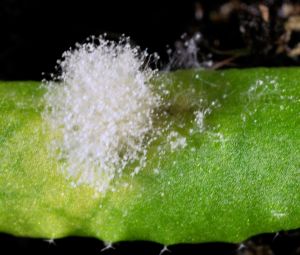Scientists from the Centro Nacional de Biotecnología of the CSIC (CNB-CSIC) lead by Roberto Solano have discovered a new pathway for jasmonate production in plants. This plant hormone intervenes in many developmental processes, resistance to pathogens, and stress situations. The study was published in the journal Nature Chemical Biology. The journal will highlight this study in the cover of its next issue.
"For decades we have assumed there is only one way to generate jasmonate in plants. The pathway has been studied intensely and described perfectly. Our work shows that plants kept secret an alternative pathway that allows them to have the hormone at their disposal when they need it, "says Andrea Chini, CNB-CSIC scientist and co-author of the study.
According to the authors, the specific characteristics of this new route are still unknown. "It might be activated only when the classical pathway fails, or only in response to specific stimuli. What seems clearer is that it has had notable importance throughout evolution and probably precedes the best-known route," the researchers suggest.
The scientists have already begun to delve into this newly identified pathway, and confirm that much work remains before all details can be explained. "This is a new piece of the jasmonate puzzle. Understanding it in depth could lead to the development of crops that are more productive, more resistant to pests or to stress situations," they say.
The study, carried out in collaboration with several European institutions, is a continuation of research conducted for years in Roberto Solano's laboratory at the CNB-CSIC to define the details and activity of this hormone.
-
Andrea Chini, Isabel Monte, Angel M. Zamarreño, Mats Hamberg, Steve Lassueur, Philippe Reymond, Sally Weiss, Annick Stintzi, Andreas Schaller, Andrea Porzel, José M. García-Mina and Roberto Solano. An OPR3-independent pathway uses 4,5-didehydrojasmonate for jasmonate synthesis. Nature Chemical Biology 2017 doi: 10.1038/nchembio.2540






